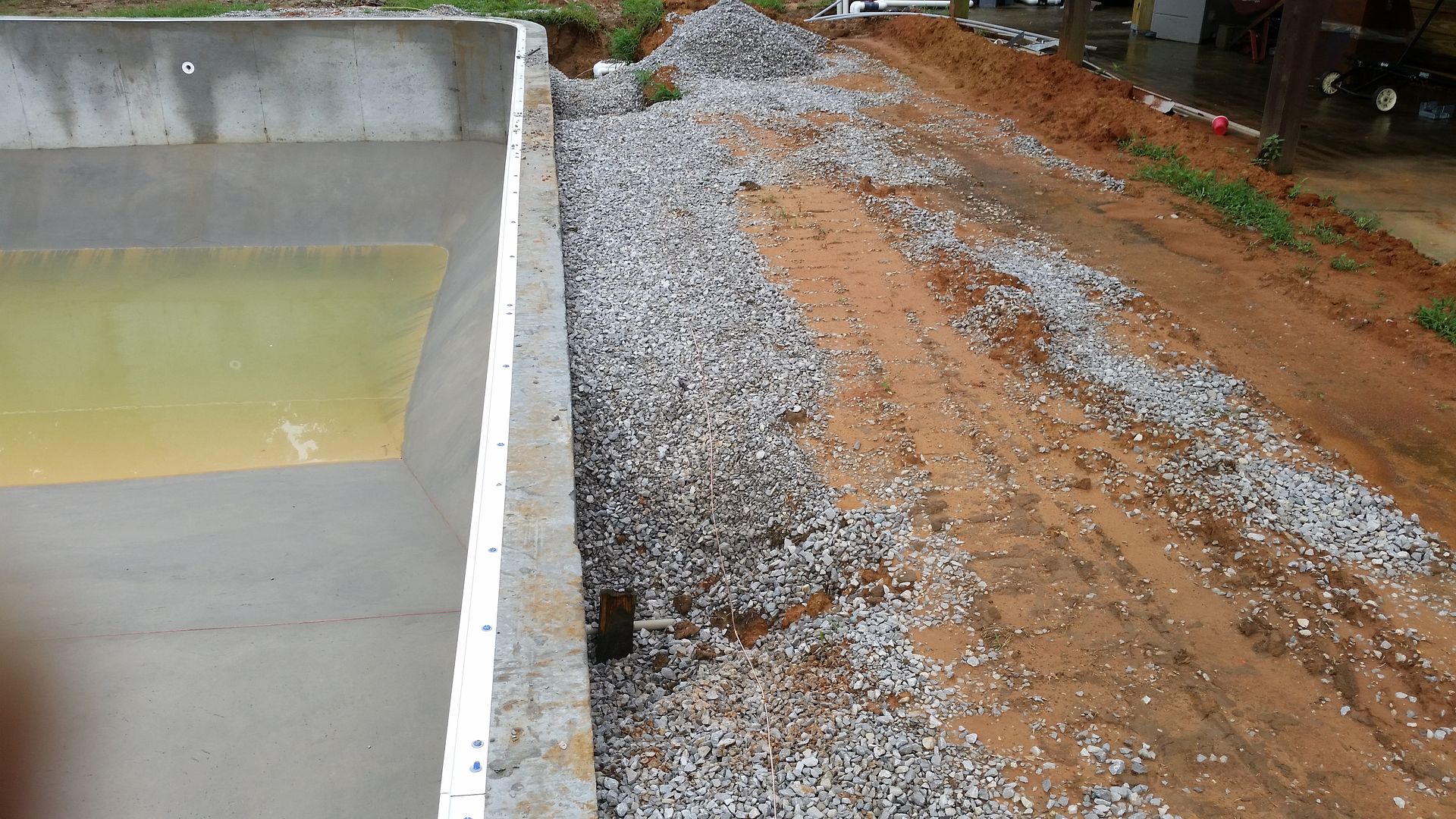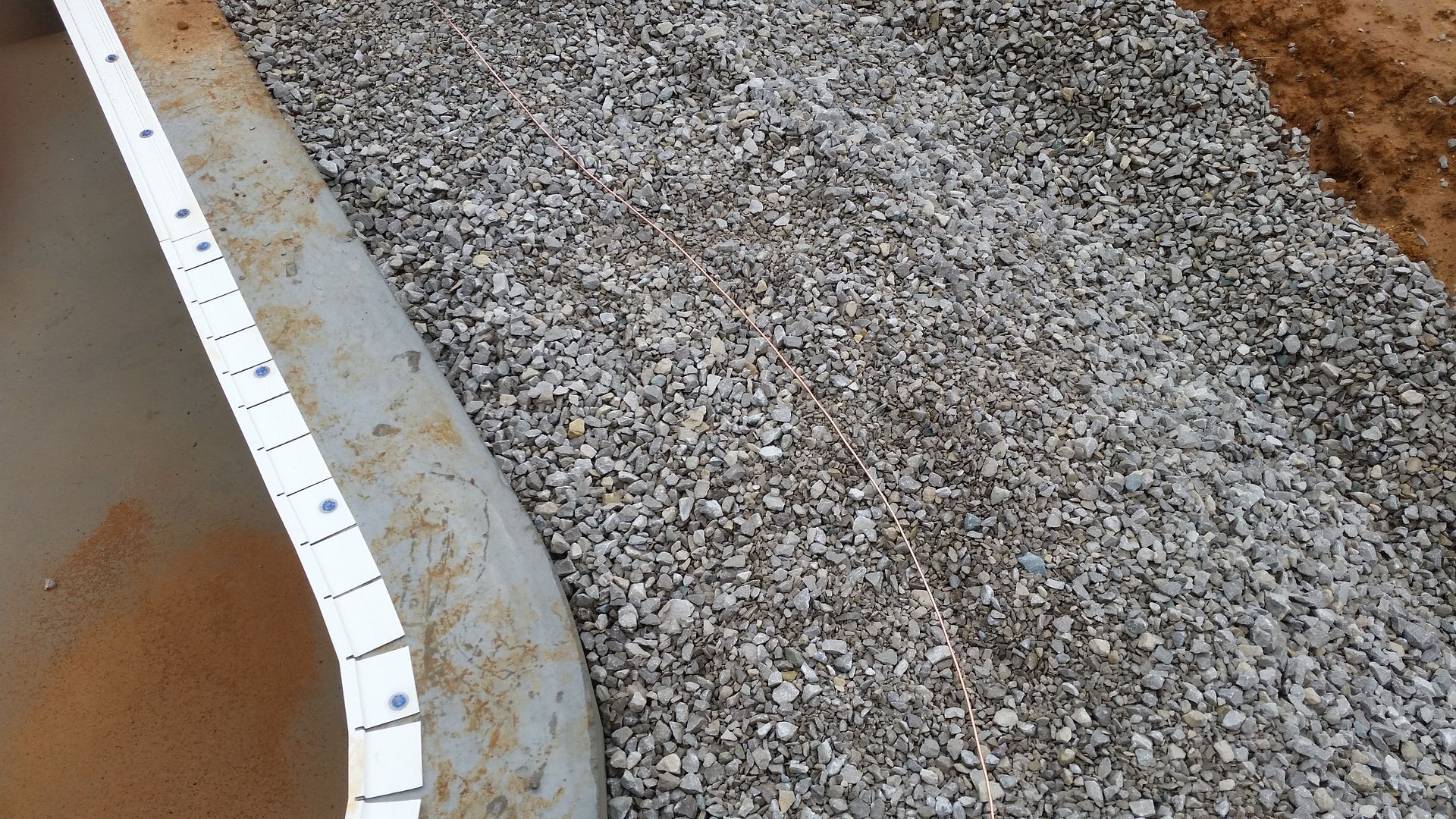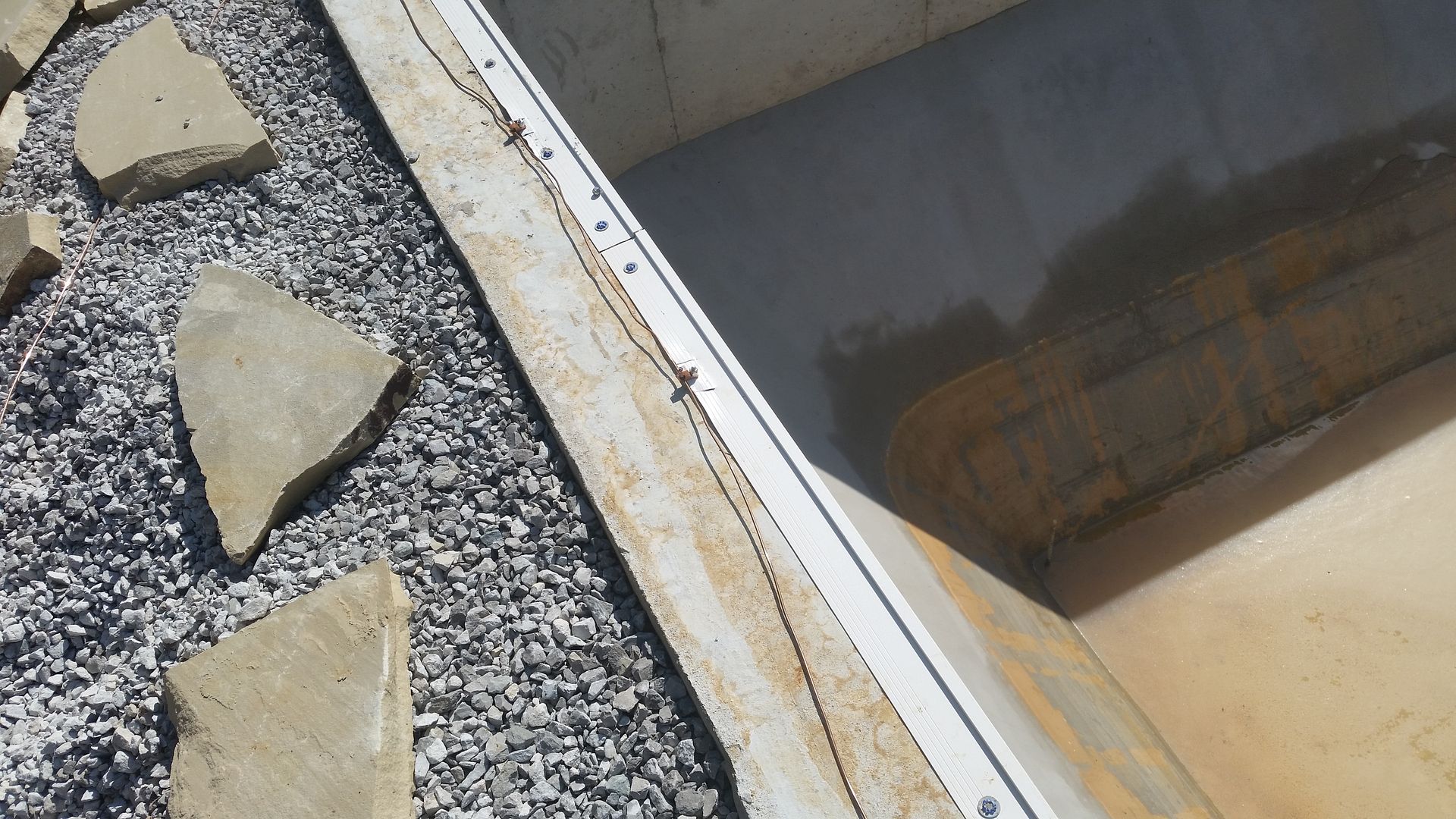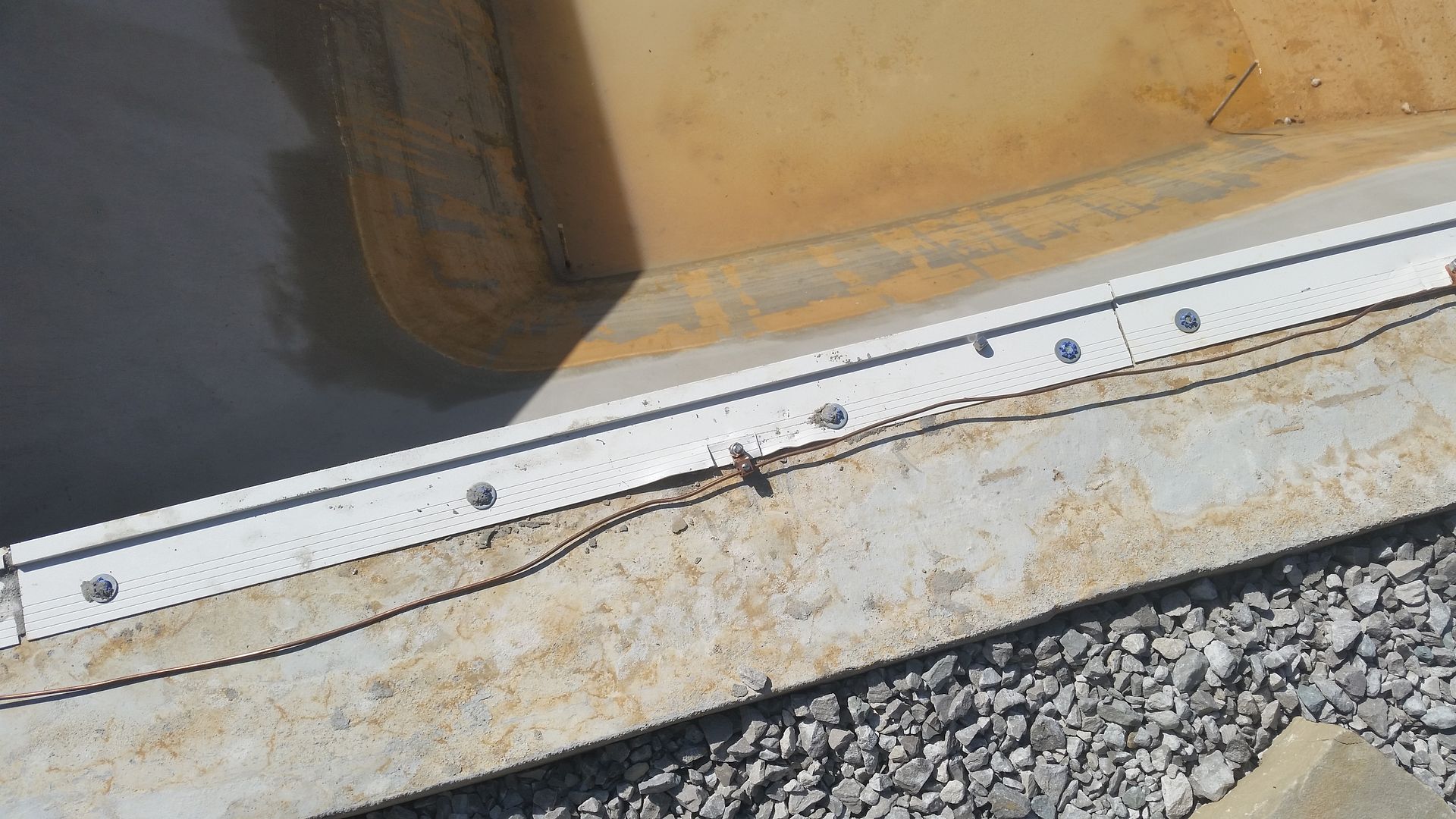- Location
- Tennessee NEC:2017
- Occupation
- Semi-Retired Electrician
I know that any metal attached to a pool is supposed to be bonded. I ran into a situation that I was unaware of. I ran a #8 solid copper around the pool as required and jumpers to ladders, rails, diving board, etc. When the inspector went to inspect he called and asked me why I didn't bond a thin little metal strip that was on top of the pool walls.
I told him I didn't notice any strip and said I would check with the pool company.
Turns out they put these metal strips on top, around the pool to hang the liner on. These are not a solid strip but many strips are used around the pool with no mechanical connection between them.
Now these strips are only about 2" wide and about 1/16" thick. There were 14 sections around this pool. The inspector required they be bonded and I complied. It wasn't easy but I did it.
I know the inspector was probably right since they are metal but here's my question.
Since these strips will be covered with stone for coping around the top, what are the chances that these strips would ever see any voltage? The little (1" or less) part that goes over the edge inside the walls is where the liner attaches. I think that will be covered with a non conductive material. So all that metal will be covered.
I'm not arguing the inspector did his job just trying to see how these metal strips could get energized let alone being touched.
Here's some pics of before and after I bonded the strips.




I told him I didn't notice any strip and said I would check with the pool company.
Turns out they put these metal strips on top, around the pool to hang the liner on. These are not a solid strip but many strips are used around the pool with no mechanical connection between them.
Now these strips are only about 2" wide and about 1/16" thick. There were 14 sections around this pool. The inspector required they be bonded and I complied. It wasn't easy but I did it.
I know the inspector was probably right since they are metal but here's my question.
Since these strips will be covered with stone for coping around the top, what are the chances that these strips would ever see any voltage? The little (1" or less) part that goes over the edge inside the walls is where the liner attaches. I think that will be covered with a non conductive material. So all that metal will be covered.
I'm not arguing the inspector did his job just trying to see how these metal strips could get energized let alone being touched.
Here's some pics of before and after I bonded the strips.






